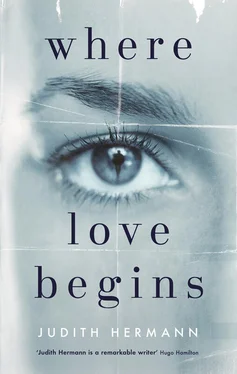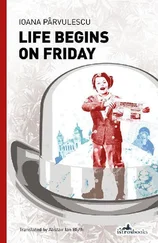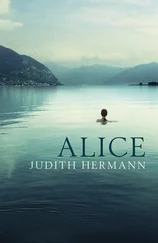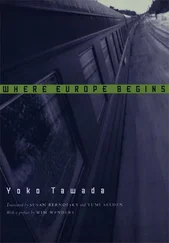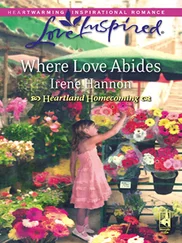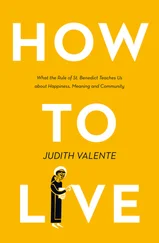Stella’s books pile up around the armchair. For some time now Ava’s books have also been piling up around the chair. Children’s books of thick cardboard.
*
This is the blue door. Let’s see who lives there. We’ll just knock. Knock!
*
In the hall there’s a stairway going up to the first floor. The mail is lying on the bottom step, on the steps above that are Ava’s hat, the bicycle keys, chalk, a little plastic horse, a super ball, a broken kaleidoscope, a dinosaur skeleton, and on the top step there’s a child’s purse embroidered with coloured beads. Fourteen steps, Stella has known this ever since Ava has been learning to count. Upstairs there are three rooms. The master bedroom, a room in the middle for Stella, and Ava’s room. There, the night-light in the globe is still on, and a mobile of stars and moons hanging from the ceiling lamp sways in the draught. The bed stands against the wall. Close to the edge of the bed there’s a small depression in the tidily smoothed bedspread — Ava was sitting there in the morning while Stella plaited her hair into two stiff little black braids. The stuffed animals lean neatly and importantly against each other, a tiger and a cat, a dishevelled little hedgehog. Ava’s stack of memory cards on the red table is distinctly larger than Stella’s. A wrinkled princess dress is draped over the rocking chair. On the bookshelf, a series of framed photos that sometimes seems to Stella like a butterfly collection — time impaled, held fast, the extreme and also crazy beauty of single moments. Ava as a baby. Ava with Jason in a boat among the reeds. Ava with matted hair on a chair downstairs in the kitchen, sitting ramrod straight in plaid pyjamas. Ava on Stella’s lap, and after her midday nap. And a photo of Stella and Jason by the sea; some day that photo may mean something to Ava: her parents by the sea in the one brief year during which there was no Ava yet. Unimaginable, and at the same time simple.
The door to their bedroom isn’t quite closed. Inside, the bed isn’t made, the blankets lying one on top of the other, the pillows not fluffed up, the sheet has slipped down. The curtain at the window is still closed; sunlight falls on the floor in a narrow stripe next to Jason’s shirt, Stella’s book.
In Stella’s room her desk stands by the window. A postcard from Clara is propped against a glass vase on the desk. There are also books on the desk, stationery, a ballpoint pen lying diagonally across the line: My dearest Clara, the morning is so still, so quiet, as if a catastrophe had occurred somewhere, and I go downstairs and open the front door because … The clock on the windowsill ticks sharply into this stillness. Gift-wrap is spread out on the guest bed, photocopied schedules for Stella’s working week, blouses that need to be ironed. The sliding window is open. The wind blows into the stationery, riffling through the sheets of paper.
Three panes of leaded glass are set into the front door, two lilies and one seagull. The panes were a gift from Clara to Stella when she moved in. For Ava’s birth. For Stella’s wedding, for the move, as a second goodbye. Clara is Stella’s best and only friend. Why do you just have only one girlfriend, Ava says. One is quite enough, Jason says then; he says it for Stella, and Stella says, So it would seem.
You can’t see either out or in through the leaded glass panes. You can see out only through the little window to the right of the door, out to the garden gate. A wrought-iron gate in a wrought-iron fence. Jason bought the fence along with the house and wanted to rip it out immediately; luckily he hasn’t got around to it yet. Stella is glad about the fence. The fence holds quite a few things together here, the garden, the house, the books, Ava and Jason, her life. It isn’t as if it would all fly apart without the fence, but Stella considers boundaries important — distance, space for herself. The little window next to the front door is a frame for the view of the fence, the view to the garden gate. You have to put something there, Clara said, a Madonna or something like that; but Stella hasn’t found anything yet that could stand there.
*
This is the house on a day in spring.
There’s no one there.
Stella is out; she works as a nurse; her patients live in houses in the new development on the other side of the big street.
Jason is also away; he is building a house by a lake.
Ava is at her kindergarten. She’s in the blue group; she has a blue flower sewn on her little coat so that she won’t forget, and she wears the blue flower like a medal.
The garden gate is of course locked.
The street is empty, no one in sight; the little birds in the hedge make almost no sound.
Three weeks later Stella is at home. Midday, twelve o’clock.
Stella is often at home at twelve in the middle of the day. She has three patients on her weekly schedule: Esther, Julia and Walter. Usually she takes the early shift at Esther’s and the daytime shift at Walter’s; her shift at Julia’s depends on Julia’s husband Dermot, on the state of his health; recently his health has been poor. But that particular day Dermot feels able to take Julia to the doctor by himself. And so Stella stays at home. Is able to be home alone in the middle of the day.
The middle of the day in the development is a calm, quiet time. The houses all stand there deserted; their people don’t come back till the end of the working day. Stella likes being alone. She’s good at busying herself with the garden, her books, the household, the laundry, long telephone conversations with Clara, the newspaper, with doing nothing.
Before, she used to live in the city with Clara in an apartment house on a street with many cafés, bars and nightclubs; people sat on the pavement directly outside their front door at tables under large umbrellas and awnings, and their voices and conversations, their worries, speculations, promises, their exorbitant remarks about happiness and unhappiness resounded in the night all the way up into Stella and Clara’s living room. Never. Forever. Ever again, never again, till tomorrow, goodbye. That wasn’t so long ago. Stella can’t say she misses that life.
Nowadays she likes being alone; before, she didn’t like being alone. It’s that simple; only she doesn’t really know just when this change actually took place. And how — suddenly or gradually? In the course of months, or from one day to the next, from one day that Stella has forgotten to another. It’s the same with Clara. Clara lives in a watermill, a thousand kilometres away; she has two children now and is just as addicted to being alone as Stella. That’s because of the children, Clara says. They devour you. Stella thinks of that in the mornings when she sits at the kitchen table with Ava, drinking tea with honey and watching her eat a banana.
Clara says you devour us. Is that true, Ava?
Ava’s laughter sounds astonished. Indignant and a little as if she’d been caught unawares.
On the days Stella is free until midday, she takes Ava to her kindergarten by bike. Then, cycling home again, she leaves the bike in the front garden, unlocks the front door, enters the hall and feels distinctly grateful, as if everything around her were temporary, as if there were no certainty of permanence. She couldn’t really say how she spends these mornings, these three or four hours. She cleans up the kitchen. She washes her hair. She writes a postcard to Clara, reads a little in the newspaper, reads a book, washes Ava’s things, goes through Jason’s mail and the bills, tends to the plants in their clay pots on the windowsill, pressing an index finger into the soil around the roots and breaking off the little stems that have finished blooming, just the way Jason always does. Standing at the kitchen window, she looks out at the garden, out towards the meadow, at the formations of dark, luminous clouds far away above the city. Then she brews a pot of tea. Turning on the radio, she listens to a travelogue, then turns the radio off again. She goes upstairs and puts the ironed and folded laundry away in Ava’s chest of drawers. Standing in Ava’s room, she regards the still life on Ava’s table, an apple with a bite taken out of it, a memory card, thin, coloured-pencil shavings, a juice glass. She’d like to clean it up; she’d like it to stay exactly as it is. She has to leave in a quarter of an hour. She has to go. She’s got to leave right now.
Читать дальше
